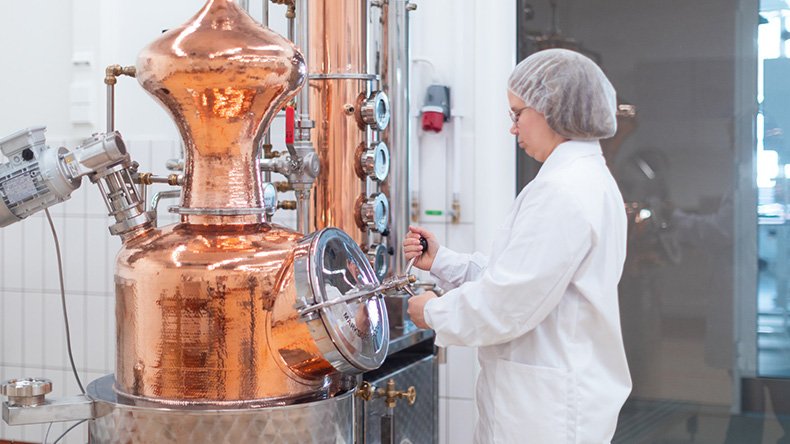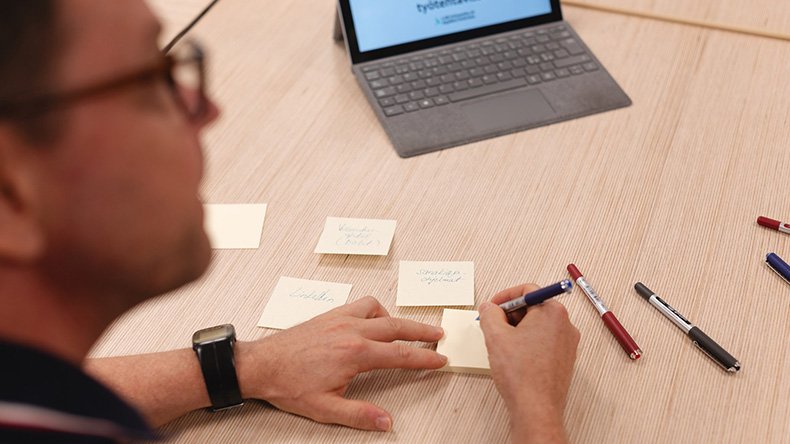53850 Lappeenranta
 lab [dot] fi
lab [dot] fi lab [dot] fi
lab [dot] fi lab [dot] fi
lab [dot] fi lab [dot] fi
lab [dot] fi
Climate change and biodiversity loss are pressing, complex challenges of our time and require urgent attention. Natural resources have been overconsumed for centuries. This is now threatening life on our planet. We need business solutions aiming for sustainable and profitable growth to respond to these concerns.
Industry and primary production generate vast amounts of side streams and waste that are pushing planetary boundaries. The circulation of materials, the efficient utilisation of side streams, and new materials help to reduce environmental impacts. In the battle against environmental degradation, we need to circulate materials and utilise side streams in a variety of ways.
The LAB University of Applied Sciences creates ways to address challenges such as climate change and biodiversity loss by researching and developing opportunities provided by multipurpose materials. Our circular economy expertise meets the needs of the working world. We support the growth and internationalisation of businesses by developing innovative, economical, and ecological solutions.
Bold innovations and the efficient utilisation of side streams and waste require open collaboration, research, and networking between higher education institutions, businesses, and the public sector. In these efforts, LAB plays an important role especially by partnering with SMEs.
We seek diverse funding opportunities to collaborate with companies and other partners in research and development. We also influence legislation and frameworks steering our operating environment to promote circular economy innovations.
Our research and education are founded on expertise in and an understanding of the systemic nature of the circular economy. We help businesses create sustainable business opportunities and innovations and promote circularity in their operation.
Concrete examples of this include providing laboratory and expert services customised for company needs. We utilise our circular economy laboratories in research, development, and innovation.
We conduct research on plant-derived waste and side streams and their processing into useful, high-value materials. We are making strong investments for the future in this research field, such as the biomaterial processing ecosystem we are building on our Lappeenranta campus.
We also study and develop sustainable plant-based food production, leaning strongly on ecosystem thinking. The Food Pilot Plant on our Lahti campus offers food industry companies an opportunity to develop and innovate plant-based food products in collaboration with LAB’s experts.
LAB pioneers in the green and digital twin transition Understanding the systemic nature of the circular economy and applying it to practice helps identify sustainable growth opportunities that lead to the green and digital twin transition. The twin transition refers to the simultaneous digital and ecological change that promotes environmentally friendly and sustainable digital technologies. Key factors for a successful twin transition
|
 lab [dot] fi
lab [dot] fi lab [dot] fi
lab [dot] fi
The growth and internationalisation of companies play an essential role in the economic competitiveness of Finland and all of Europe. Growth is based on innovations with which companies provide added value to their customers. A company's innovations are founded on its intellectual capital, including its brand, intellectual property and patent rights, employees’ know-how, networks, customer relations, organisational culture, technological solutions, and processes and systems.
Intangible value creation refers to business activities where value to the customer is generated by means other than physical products. It may be a matter of experiences, emotions, impressions – or more extensive phenomena, such as easy mobility, clean air, or even supply security. It often involves comprehensive solutions that simplify a particular area of a customer’s business or life. By increasing their intangible value, businesses create the value-added products and solutions that Finland needs. In creating such solutions, LAB is the ideal partner for companies with its strong strategic expertise in design, foresight, and commercialisation.
Finding solutions to complex present-day problems, such as climate change, health crises, or inequality, requires more than just physical products. They should be accompanied or even replaced by a variety of intangible innovations. In fact, a company needs to boldly and open-mindedly make the most of its intellectual capital to achieve a competitive edge.
LAB helps businesses develop products, services, brands, and business models that create value for people and the planet. LAB’s strategic expertise in design and futures thinking offers companies insights into opportunities related to intangible value creation. Customer- and user-oriented innovation processes, building innovation capabilities, and developing solutions with high added value are LAB's strengths that support SMEs in achieving sustainable, regenerative, and profitable growth.
Investments in research and development are an essential part of a company's intellectual capital. For intangible assets to translate to profitable business, a company needs research and development and the commercialisation of its outcomes, such as knowledge, expertise, solutions, products, and services. LAB helps businesses and research organisations commercialise innovations from their research and development in order to enable sustainable and profitable business growth. LAB's expertise covers revenue model and risk assessment, market entry studies, value chain assessment, and business modelling.
LAB helps SMEs create value and develop competitiveness through close collaboration and an international partner network. We focus on growth-oriented business solutions and encourage companies to pursue success by turning research into business involving themes such as food, mechanics, electricity, chemistry, digital business, fintech, and robotics. Our expertise also supports the development of entrepreneurship and startups.
LAB pioneers in intangible value creation Intangible value creation refers to understanding the importance of a company's intellectual – non-physical – capital and turning it into a source of growth. A company's intellectual capital includes elements such as the company’s brand, intellectual property and patent rights, employees’ know-how, networks, customer relations, organisational culture, technological solutions, and processes and systems. Key intangible factors for successful growth and internationalisation
|
 lab [dot] fi
lab [dot] fi lab [dot] fi
lab [dot] fi